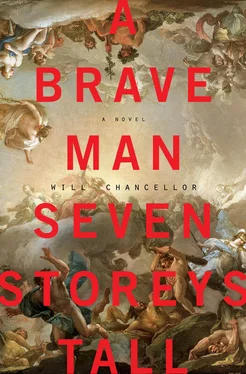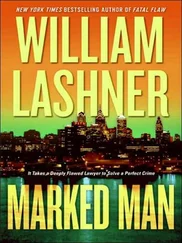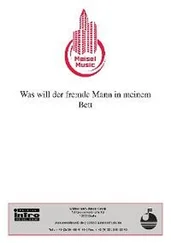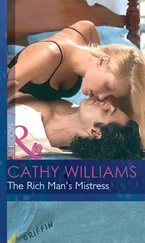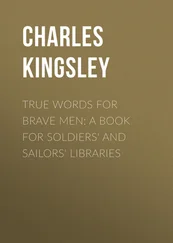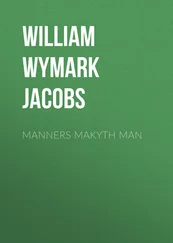Ólafur Sigurðsson kept a thousand sheep on his home pasture twenty kilometers from Hofsos. His wife’s father had managed the farmstead, like his father before him.
Ólafur met Stina at art college in Akureyri. He studied painting. She studied poetry. At twenty-one they married and moved back to the farmstead. At twenty-four Stina gave birth to their only child, a rosy-cheeked girl called Ástríður. At twenty-seven, Stina left to study poetry in New York City. She said it would be three years abroad. Nearly a decade had passed, and she had yet to return.
Ólafur thinned the flock from four thousand to one thousand sheep. His desperate prices drew the ire of every landowner in the district. The council meeting of October 2000 was the last time he’d spoken to a neighbor. His former flock had been left to roam the interior during summer months. He kept his new, smaller flock in the field and the paddock, with the cliffs to the sea acting as his western fence. The flock was too large to name individual sheep, which was the world he wanted for his daughter, but small enough to keep on his land. He missed the horseback rambling of the summer months, when he would bring every lime-green-eared sheep back to his fold. There was no way to wrangle sheep on horseback with a kid. He had tried the first year and he had tried to mow himself, to keep others from his land, but the first year was a year of death and snarls and shivering that he hoped never to repeat.
Shearing a thousand sheep was barely manageable for two hard workers and a dog. Like most farmers in his country, he preferred to keep things there, barely manageable. Ástríður rang the bell from the water’s edge on the southeastern corner of the pasture. Ólafur yelled and stomped in first-step stammers from the northeastern edge. Together they led the flock into the first holding pen, itself as big as most fields. Then Ástríður, in her favorite part of every June day, clanged her bell for an hour until every sheep passed through the narrow chute to the second, smaller pen. Ástríður latched the gate and left Ólafur in the middle of a fearful stubborn mass of wool. She straddled through a wooden crook and grabbed the electric shears attached to the wall with two cream-colored extension cords.
Ólafur held the horns of the recalcitrant sheep, twisting the neck until it became docile, while Ástríður clipped the knotted hair with her scissors and sheared away the first coat of wool. He straddled the neck of the sheep, dropping his weight and bringing it to the ground if it stirred enough to unsettle the metal blades or buzzing clippers in his daughter’s hands. Together, they could shear the entire flock in June and recover from the sixteen-hour days while the industrial mowers from Dalvík packaged the grass in white polyurethane marshmallows of hay.
By August, after the big mow, his home pasture was dotted with the bright white hay bales that Ástríður, in her bright blue windbreaker, could almost roll. This was the month they could return to the Sagas of Icelanders and read about the brave men seven storeys tall.
An outdoor supply store is a horrible place to be with no money. In Egilsstadir Outfitters, Owen browsed through tents and bags and packs and shells, all with waterproof laminates. He could add. The gear he needed cost more than a used car. Enter the used car salesman:
— What kind of a hike are you planning?
— A thru-hike.
— Dettifoss to Myvatn? It should be nice this week. But the midges are out. You’ll need a bug net.
— Can you show me Dettifoss on a map?
— Oh. So you don’t know what you’re doing.
— This isn’t going to be a traditional hike.
— Look. Just write down your name, phone number, and your parents’ contact information. It’ll save everyone from Search and Rescue a lot of time.
— I need the gear to make it until at least the first of winter.
— Oh. You mean two weeks from now. What do you have?
— Nothing. These clothes and a couple shirts and a sweater.
— What’s your budget?
Owen pulled out the crisp thousand-krónur notes he had been given in exchange for his wadded euros. They seemed so powerful until he put them up against prices. The salesman tilted his head and laughed.
— You have a credit card, I’m assuming.
— No.
— Hired gear will cost you more than that. And without a credit card, I can’t rent you anything.
— I’m in your hands. That’s what I have. You can take it now.
— Let me see what’s in the lost-and-found box. Some gear gets left behind on trips.
Looking around the store, Owen made a mental inventory of essential purchases. The salesman returned with a cardboard box and a pole.
— One of your fellow Americans cracked a trekking pole a few months ago and left the partner behind. Should be tall enough for you as long as you don’t go downhill. Here. Try that on.
Owen put on an orange fleece. He kept his arms winged out so as not to split the back.
— That’s the only jacket I’ve got. Take this vest. You can wear it under your sweater. And let’s see. You can use this beanie. Ach. None of this other garbage is going to help. People never leave behind the essentials.
— I still need a tent, sleeping bag, water bottle…
The salesman reached into the garbage pail and pulled out a plastic Coke bottle.
— Lots more where that came from. What else?
— Water purification tablets.
— You’ll be fine as long as you get water from up high; go higher than wherever the sheep are.
— Jacket.
— You need something waterproof. It’ll be raining everywhere this time of year.
— Then I should grab some packliners for my gear.
— I’ve got your packliner too.
He pulled out two garbage bags and put them on the counter.
— I don’t think I have enough for a sleeping bag.
— Not even close. I’ve got a wool blanket in my trunk. Not the softest thing in the world, but it’ll keep you warm. I’ll sell it to you for a thousand krónur.
— I still need a tent.
— Buy a plastic tarp at the hardware store. And a roll of duct tape. I’ll give you some paracord. You can use the trekking pole to pitch it, but that won’t last in the wind. Am I scaring you off yet? Want to quit?
— I need a good knife.
— For cutting rock? There are no trees. Iceland’s all rock. Provided you aren’t trying to stab someone, there’s nothing less useful in the Iceland backcountry than a knife. Now let’s look at what you do have to buy: a shell jacket or a poncho, since your coat will soak through in less than an hour, two poles for the tarp, boots, ankle gaiters to keep the rocks out, and some kind of backpack. What do you have there? Twelve thousand krónur? Less a thousand for the blanket. Less another thousand for the tarp and duct tape. You have anything to trade?
— I have a book and a sweater. Some T-shirts.
— Any jewelry?
— No, sad to say.
— No watch?
Owen showed his naked wrist.
— No phone? How about the duffel?
Owen set it on the counter and removed his clothes.
The shop owner sniffed it at the same time that he pulled a face at the cardinal S.
— I got my master’s in computer science from Berkeley. Tell you what, go to the hardware store, come back here before eight p.m., and I’ll get a pair of old boots that’ll more or less fit.
Owen came back a few hours later with a tarp — they only had blue — and duct tape. The shop owner outfitted him with a chicken-yellow poncho and a beat-up sixty-liter backpack with a torn hip belt, which he decided to cut off rather than patch since there was no way of getting the belt to rest on Owen’s hips.
Читать дальше
